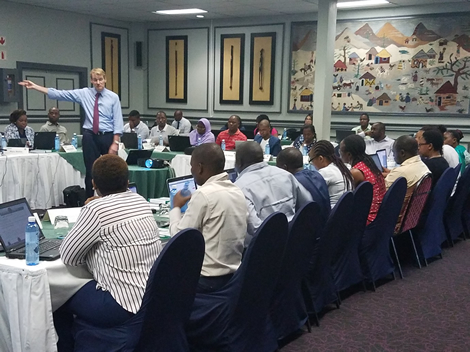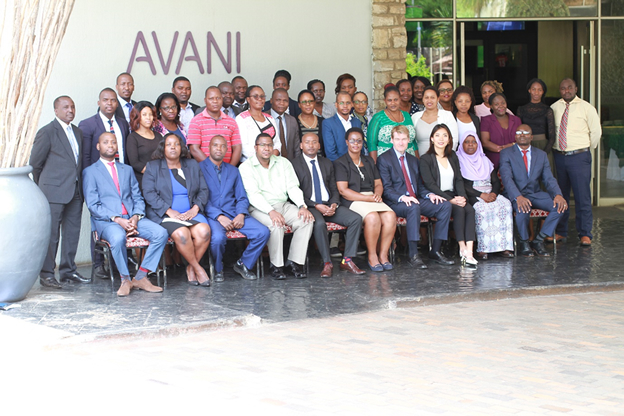- April 10, 2019
- Posted by: admin
- Categories: Current News, debt management
The recent rise in sovereign debt levels, coupled with the discovery and materialisation of contingent liabilities in some SSA countries, underscores the importance of reliable and timely statistics on general government and public sectors. In addition, greater emphasis on transparency and accountability in the use of public finances, and the need to monitor progress towards the achievement of Sustainable Development Goals (SDGs) have highlighted the need for ratcheting efforts towards assisting governments in enhancing the quality of key macroeconomic statistics.
 As part of ongoing efforts to improve the quality of macroeconomic statistics, MEFMI in collaboration with the IMF organised a regional workshop on Government Finance and Public Sector Debt Statistics from 11 to 22 March 2019 at Avani Maseru hotel in Lesotho. The workshop aimed to develop and enhance participants’ capacity to compile and disseminate government finance and public sector debt statistics in line with internationally recognized statistical reporting frameworks, particularly the Government Finance Statistics (GFS, 2014) and the Public Sector Debt Statistics (PSDS, 2011).
As part of ongoing efforts to improve the quality of macroeconomic statistics, MEFMI in collaboration with the IMF organised a regional workshop on Government Finance and Public Sector Debt Statistics from 11 to 22 March 2019 at Avani Maseru hotel in Lesotho. The workshop aimed to develop and enhance participants’ capacity to compile and disseminate government finance and public sector debt statistics in line with internationally recognized statistical reporting frameworks, particularly the Government Finance Statistics (GFS, 2014) and the Public Sector Debt Statistics (PSDS, 2011).
The workshop was officially opened by the Deputy Permanent Secretary in the Ministry of Finance of Lesotho, Mrs ‘Mamakopoi Letsie. In her remarks, Mrs Letsie commended MEFMI and IMF for assisting countries to adopt international frameworks for compiling and disseminating macroeconomic and financial statistics. She said MEFMI’s partnership with the IMF is useful in helping to deliver coordinated interventions that contribute to the common goal of poverty reduction and human development in Eastern and Southern Africa. She urged the two institutions to continue with the on-going excellent work and also contemplate new and wider areas of future collaboration.
The training was delivered through lectures, case studies, guided exercises and plenary discussions. To facilitate peer learning, the programme included interactive sessions for participants to share their country experiences in the compilation and dissemination of government and public sector debt statistics. The case studies and hands-on exercises helped to reinforce concepts and methodologies covered during the lectures. In addition, the resource persons provided practical guidance to delegates that brought their country source data on how to:
- compile annual and quarterly stock positions in liabilities, which they are expected to refine for inclusion in annual GFS questionnaires as well as dissemination on the joint IMF/World Bank PSDS Database;
- prepare data to address identified gaps in country reporting to the GFS database, particularly above-the-line revenue and expenditure data series (annual data); and
- transform their reporting framework from GFS 1986 to GFS 2014.
A total of 31 officials from 13 member countries attended the training. Of these, 19 (or 69 percent) were female while 12 (or 39 percent) were male. The workshop was facilitated by Messrs Gary Jones, Senior Economist in the Government Finance Division at IMF; Danny Labonte, Accountant in the Ministry of Finance in Seychelles, and Tiviniton and Senei Molapo, both of MEFMI Secretariat.
The main output of the workshop was enhanced participants’ knowledge and capacity to apply GFS and PSDS principles and methodologies as a basis for compiling and presenting government finance and public sector debt statistics. This is expected to support countries’ efforts to improve availability and accuracy of public sector statistics required to inform policy. The training also provided MEFMI and IMF with a unique opportunity to engage participants in a peer-learning environment, allowed identification of capacity gaps to inform development of country-specific work plans for follow-up in-country technical assistance.

